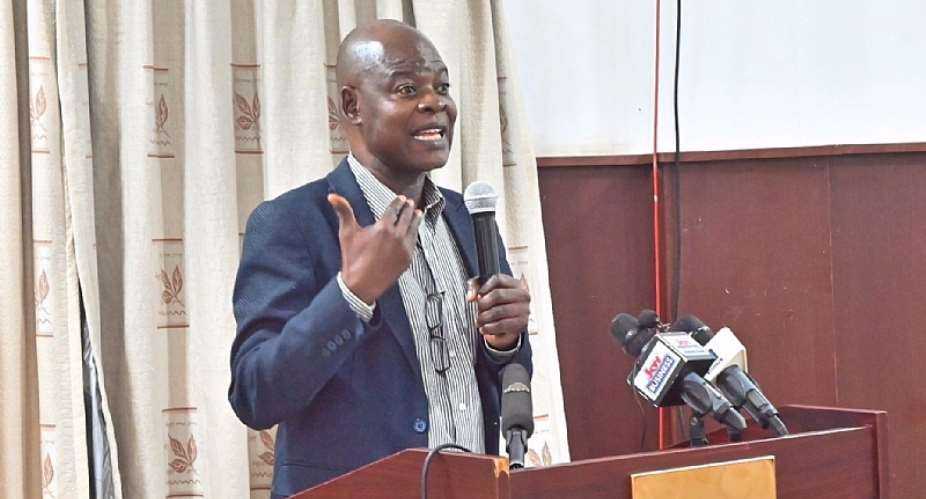
Once upon a time in Africa, being an “expert” was enough. You got your degree, you mastered your field, and people treated you with the kind of reverence usually reserved for village chiefs and church elders.
If you were a lawyer, you wore the wig; if you were a doctor, you wore the white coat; if you were an engineer, you wore the helmet. Respect was automatic.
But not anymore. Today, you can be a world-class expert, the human encyclopaedia of your industry, and still be invisible if you don’t know how to influence. Welcome to the 21st-century workplace, where expertise alone is the entry ticket, but influence is the currency that actually buys you opportunities, visibility, and promotions.
Expertise: necessary but not sufficient
Don’t get me wrong—expertise is still vital. Nobody wants to hire a pilot who is merely influential but can’t actually fly the plane. But here’s the catch: expertise is everywhere now. Universities, online courses, Google, and even YouTube have democratized knowledge.
What makes you stand out isn’t just what you know—it’s how you share it, how you shape conversations, and how you make people listen. That’s influence.
The African boardroom Is changing
In Lagos, Accra, Cape Town, Nairobi, and beyond, corporate leaders are waking up to a new reality: the people who thrive are not just the silent experts who keep their heads down, but the professionals who can command attention, build networks, and inspire others.
The boardroom no longer rewards only the one with the fattest CV; it rewards the one who can present ideas with clarity, rally the team around a vision, and make complex information digestible to even the most distracted executive (you know—the one always checking WhatsApp during meetings).
Influence = visibility trust storytelling
So, what does influence look like in practical terms?
- Visibility – You can be the best accountant in Ghana, but if nobody knows you exist, you’ll remain hidden in the cubicle shadows. Influence means raising your profile—through presentations, articles, podcasts, or even LinkedIn posts that don’t put people to sleep.
- Trust – We Africans are naturally skeptical (we’ve seen enough “miracle weight-loss teas” to last a lifetime). Influence is built when people know they can trust you, not just for knowledge, but for integrity.
- Storytelling – This is the magic sauce. Influence is not just about facts and figures; it’s about weaving them into stories that connect with hearts and minds. If you can make a boardroom laugh, cry, or nod in agreement, congratulations—you’re influential.
Why corporates now value influence
Because influence drives business. Think about it:
- The expert can write a report.
- The influencer can present it so well that the CEO actually reads it.
- The expert can solve a problem.
- The influencer can get the entire team to adopt the solution.
- The expert knows the theory.
- The influencer inspires clients, colleagues, and investors to believe in it.
In short, expertise builds competence. Influence builds momentum.
How to upgrade from expert to influencer
- Own your voice – Start sharing insights in simple, relatable ways. That MBA thesis you wrote? Break it down into bite-sized lessons. Nobody has time for 300 pages.
- Build relationships – Influence grows in networks, not isolation. Talk to people. Connect beyond your job title. Attend conferences—even if it’s for the jollof rice afterwards.
- Practice public speaking – Influence is amplified when you can hold a room. From team meetings to TEDx talks, the ability to communicate is rocket fuel for your career.
- Use digital platforms – LinkedIn, Twitter (or X, if you insist), YouTube—these are not just for politicians and comedians. They’re stages for you to demonstrate thought leadership.
- Be authentic – Africa has enough pretenders. People connect with realness. Don’t fake it; influence grows when people feel your sincerity.
Final word
In today’s Africa, expertise will get you hired. Influence will get you promoted. It’s the new corporate currency—one that combines knowledge with communication, trust, and visibility.
So, if you’re an expert quietly waiting for recognition, it’s time to step out of the shadows. Share your ideas. Tell your stories. Build your network. Because the future doesn’t just belong to the smartest in the room—it belongs to the influencers who can make everyone else smarter too.
>>> Kafui Dey helps business leaders to communicate better. For one-to-one coaching, call 233 240 299 122 or email [email protected]
The post On Cue with Kafui Dey: From expert to influencer: The new corporate currency appeared first on The Business & Financial Times.
Read Full Story














Facebook
Twitter
Pinterest
Instagram
Google+
YouTube
LinkedIn
RSS